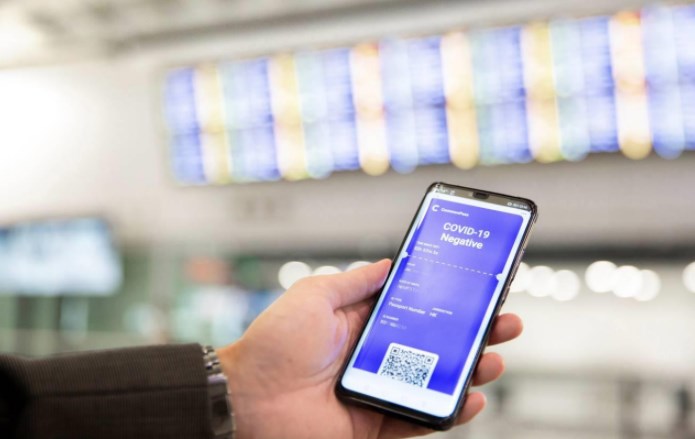Hong Kong’s Airport Authority (AA) has said that it has successfully trialled a coronavirus test digital health pass, as the city reported 11 new infections on Wednesday. Of the new cases, eight were locally transmitted, and two cases had unknown origins.
The digital health pass was tested in a trial run between the Hong Kong International Airport (HKIA) and Los Angeles International Airport (LAIA). Covid-19 test results for roleplaying passengers were sent to a mobile application in the form of the pass. The pass was then was used for checking-in.

Vivian Cheng, executive director of airport operations at the AA, said that the scheme aimed to facilitate more efficient international travel as coronavirus testing became the norm.
“As Covid-19 tests and vaccinations are poised to become new essentials for air travellers in the future, a digital solution is required to effectively integrate this new requirement into the existing digitalised travel process, from laboratory to check-in and to landing,” said Cheung.
She added that the HKIA aimed to be the one of the first airports in the world to adopt a digital health pass. Currently, travellers coming into Hong Kong have to undergo a coronavirus test at the airport.
Also on Wednesday, Hong Kong reported five more cases to the Ursus Fitness gym cluster, bringing the total to 132 infections. HSBC, meanwhile, announced that their headquarters in Central will be closed until further notice, after the building was listed in the government’s compulsory testing order. Anyone who stayed in the building for more than two hours between March 3 and 15 has to be tested before Friday.
Leprosy drugs as Covid-19 cure
A study by the University of Hong Kong (HKU) found that the leprosy drug Clofazimine is effective in suppressing the Covid-19 virus and reducing serious inflammation caused by the inefection.

The research team at HKU’s Department of Microbiology and Department of Medicine, along with a team in the US and Denmark, tested Clofazimine on hamsters, and discovered that the amount of virus found in the hamsters’ lungs reduced significantly.
Relevant results have since been published in the scientific journal Nature. Leading microbiologist Yuen Kwok-yung, who led the research, said that the discovery could provide a cheaper and more convenient alternative to Remdesivir, the drug that is currently used on Covid-19 patients.
He added that Clofazimine still has to go through a second and third phase of trials. The research team said that the drug can be considered for close contacts of Covid-19 patients as a preventative measure.
Support HKFP | Policies & Ethics | Error/typo? | Contact Us | Newsletter | Transparency & Annual Report | Apps
Help safeguard press freedom & keep HKFP free for all readers by supporting our team















